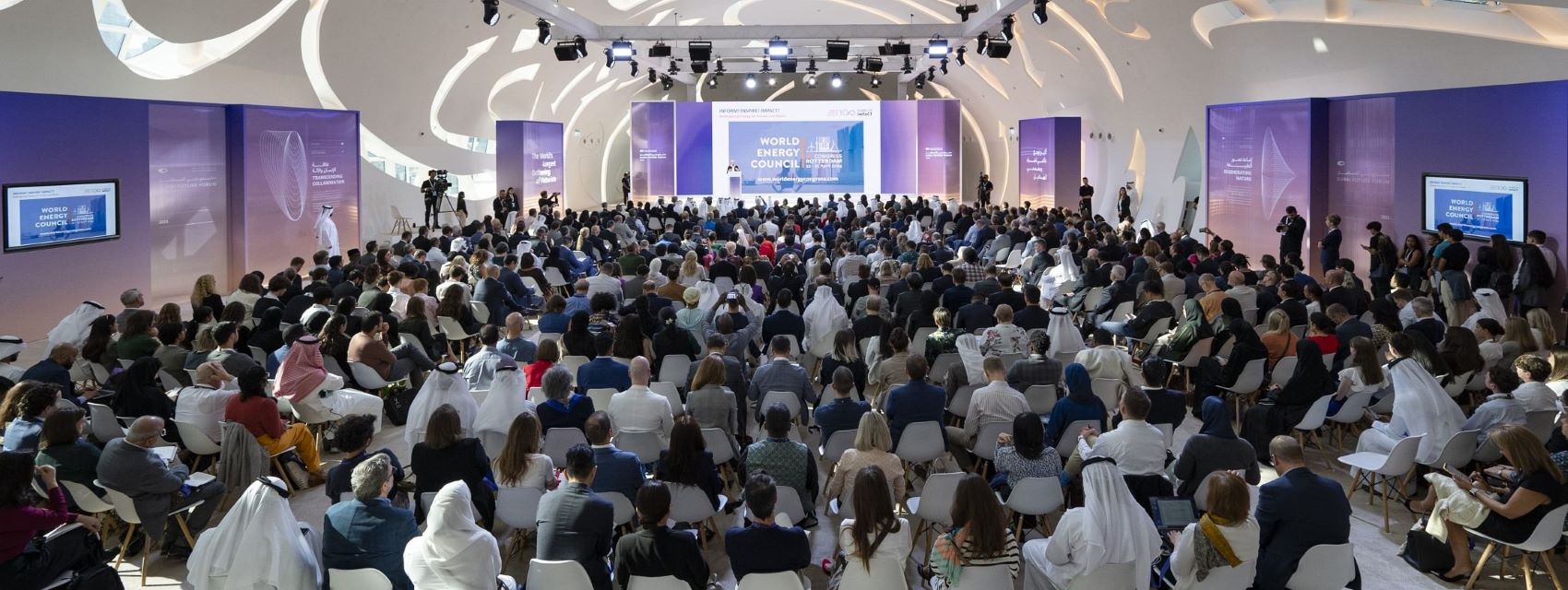DUBAI, UAE: Governments and the United Nations should create an internationally adopted framework specifically designed to help solve global challenges, a world-leading futurist on Tuesday told the Dubai Future Forum 2023 here.
Dr. Jamie Metzl, founder of ‘OneShared.World’ and author of Hacking Darwin, said the world is struggling to address its greatest challenges “because it is not organized”.
He said, “We can’t solve climate change while everyone is competing with each other … We need to do the equivalent of finding a universal flu vaccine. What is the common element and how do we target that? That’s why we need to think of global frameworks.”
The panel -‘Law and Order: How Do We Hold Technology Accountable in the Future?’- , held under one of the forum’s four themes – Transcending Collaboration – explored specific challenges relating to the rapid emergence of technologies such as artificial intelligence (AI), a press release said.
Olivier Desbiey from AXA Group described how regulating technology “is a global concern and we need global solutions”, while Dr June Brawner from The Royal Society underlined the need for international collaboration on a regulatory level, calling for governments to “share best practices”.
The Transcending Collaboration theme examined the proliferation of AI, the future dynamics between humans and machines, and how societies can adapt to rapid technological advancements.
Tackling a panel titled ‘Bionic Being: Will Wearable Technology Provide Us with the Option of a New Sixth Sense?’, Prof. Paolo Dario from Dubai Future Labs likened wearables to having companions, while Ken Chua from ‘(these)abilities’ said all wearables need to undergo community testing.
Pawel Swieboda from NeuroCentury concurred with the concept of purpose-driven wearables, noting that it was key to driving the sector to reach 1.1 billion connected wearable devices in 2022.
During a panel titled ‘Through the Looking Glass: Are We Ready for the Age of AI?’, Prof. Pascale Fung from the Hong Kong University of Science and Technology, busted the myth of personal data being used by generative AI tools, specifically large language models (LLMs).
She noted that they are trained on publicly available data, and all data is in the hand of the beholder, so it’s up to the user to provide the rights to access.
She said: “We need to be mindful of what we’re developing, but ultimately, the ethical questions are posed on the implementation stage, not development. Hence, we need to proceed cautiously, but with optimism.”
William Hurley from Strangework, spoke of the inaccurate doomsday predictions brought on by the spread of AI tools.
He noted that we are at a key moment in time, with a very short window to affect the technology and therefore we should be looking at ethics, but also development and advancement.
He cited Japan’s light-touch approach to AI regulations when calling for a balanced approach to the implementation of technology and AI in the real world.
Prof. Hoda Alkhzaimi from Emaratsec highlighted that the AI boom unravelled several issues that need to be addressed.
She noted that it increased visibility of global issues, while describing a drive to ensure solutions have technological sovereignty.
During a panel titled ‘Anticipate Responsibly: How Should Governments Act on Foresight?’, Aarathi Krishnan, Risk Anticipation and Strategic Foresight Expert noted that our systems, in a multilateral space, are not set up to understand or act on emerging risk, because they look at risks in silos – economic, health, nature, etc. whereas in reality, they’re interconnected, the release added.
Dimitri Lorenzani highlighted the need for collective intelligence to move to foresight optimism – to be honest about an inconvenient truth, for the purpose of addressing it and not for being pessimistic.
The second Dubai Future Forum, taking place on 27-28 November at the Museum of the Future, includes the participation of over 150 speakers from around the globe, who are engaged in 70 dialogue sessions, keynote speeches, and workshops.

